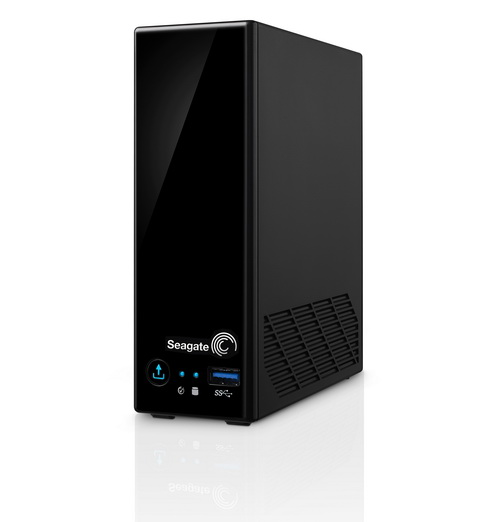INTRODUCTION

If you are currently using a NAS server then you are definitely aware of the countless options available in the market as we speak from the low end single bay models designed for home use and up to the massive ultra-high end 24 bay models aimed at large businesses. What you may not be aware however is that no matter how good a NAS server is most if not all of these options come without any preinstalled drives in their bays and although some distributors take it upon themselves to equip them with their favorite drive models in the end the result is not what I’d call a plug and play AIO solution. Seagate is amongst the very few manufacturers that actually took steps to correct this by designing their very own NAS models and pairing them with their own drives in order to simplify the entire procedure and offer consumers the easy way out. Today we will be taking a look at the base model by Seagate the Business Storage 1-Bay 3TB NAS.
Founded in 1979, Seagate is the leading provider of hard drives and storage solutions. From the videos, music and documents we share with friends and family on social networks, to servers that form the backbone of enterprise data centers and cloud-based computing, to desktop and notebook computers that fuel our personal productivity, Seagate products help more people store, share and protect their valuable digital content. Seagate offers the industry’s broadest portfolio of hard disk drives, solid-state drives and solid-state hybrid drives. In addition, the company offers an extensive line of retail storage products for consumers and small businesses, along with data-recovery services for any brand of hard drive and digital media type. Seagate employs more than 50,000 people around the world.
After taking a quick look at the specifications sheet of the Business Storage 1-Bay NAS it's very easily see that it pales to comparison with most modern NAS servers in the market (even single bay models) and that's what obviously made us question its performance prior to start testing. However what we failed to take into account was that thanks to the fact that Seagate has the ability to marry all components together (HDD included) that alone is enough to make a big difference. Of course in the end no matter how better a NAS is built if the hardware components are severely inferior to that of the competition there's simply no room for miracles. Still the 700MHz ECONA CNS3420 Dual Core ARM based SoC processor with its 256MB of DRAM clearly surpassed our expectations (as you will all see later on) and confirmed once again that our friends over at Seagate can achieve whatever they set their minds on.

 O-Sense
O-Sense







.png)

